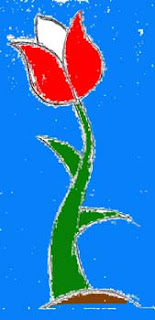The
Fledgling's Fateful Decision
I
saw the fledgling as soon as I went upstairs to work in the attic of
the old general store we are restoring. It had flown out of its nest
above the back window, hungry, head back, beak open, and waiting for
its mother to drop in food as she had done since it hatched.
The
mother had flown around me for several days on her way in and out of
the attic, squawking at my unwanted presence. I had raised both
windows so she could easily enter. I assumed she had at least one
baby in the nest.
I
carefully touched the fledgling, who didn't resist at first, possibly
hoping I'd feed it, but once lifted in my hands, it squawked and
tried to escape my clutches until returned to its nest. My hope was
that the mother would return and continue feeding it.
The
fledgling didn't wait long as it was hungry and so flew out again,
and I again I put it back into the nest when I left for the day.
The
next morning, it was out again, still hungry, and I didn't know how
long it could live because it seemed the mother had abandoned it. I
went to put it back once more when it flew through the open window
and landed on the roof of the nearby garage. I looked at it but
didn't know what to do. At first I thought about catching it and
trying to raise it myself, perhaps by feeding it with raw egg which
is weird considering the baby had started as an egg itself.
Still,
I knew the futility of trying to raise a robin in captivity as they
generally die. The mother was still around, looking for food on the
newly mown grass, but it was only for herself as it was obvious she
was done for now with raising babies and had moved on. So the
fledgling was clearly on its own, but could it survive? It only knew
how to open its beak and wait for food to drop into its mouth but,
with these changed conditions, that could only mean death.
I
realized this was an existential moment, perhaps the most significant
this bird would ever face and one that all wild birds must confront.
Unlike domesticated fowl like chickens, who stay on the ground and
show their young how to scratch for food, young wild birds are
completely on their own as their mothers never have the opportunity
to teach them how to feed themselves by pecking for seeds and looking
for insects to eat. Wild fledglings are fed in the nest, and then
suddenly they are out of it and with no foraging skills to help them
survive. This is the major turning point in the life of every bird,
when it realizes its mother is gone, when there's no more food, and
something has to change for it to live.
This
is when genetics must kick in, when the fledgling's encoded DNA has
to direct it to feed itself by doing something it's never done
before: peck for food on the ground. Its self-contained genetics are
the only teacher this bird has, and every bird on the planet faces
this moment on its own, and what a dramatic moment it is, to go from
being fully dependent on its mother to being fully independent, and
in the space of a few hours. The bird has to turn its open beak from
the sky down to the ground and use it as a tool for survival. It's an
amazing moment of transformation and transition that not every bird
survives as it's forced to adapt to changing conditions. Perhaps it's
fear of starving to death that stimulates the change and forces the
fledgling to try something it's never done before.
Whatever
it is, as I left to make supper, the fledgling was still on the roof,
utterly alone and probably utterly confused in what had changed from
a safe, known and secure world to something completely different and
terrifying. The next morning, it was gone from the roof and perhaps
it died. But I like to think it found its way through the crisis and
made it to the ground to teach itself how to eat. Then it had to find
a branch off the ground to safely make it through the night so it
wouldn't be eaten by prowling animals like raccoons, foxes and our
own farm cats.
A
bird's life is hard, especially at this moment of transition, but I
hope that one of the robins I see here at the Hermitage is that sweet
young fledgling I held in my hand, and who now knows how to feed
itself.









